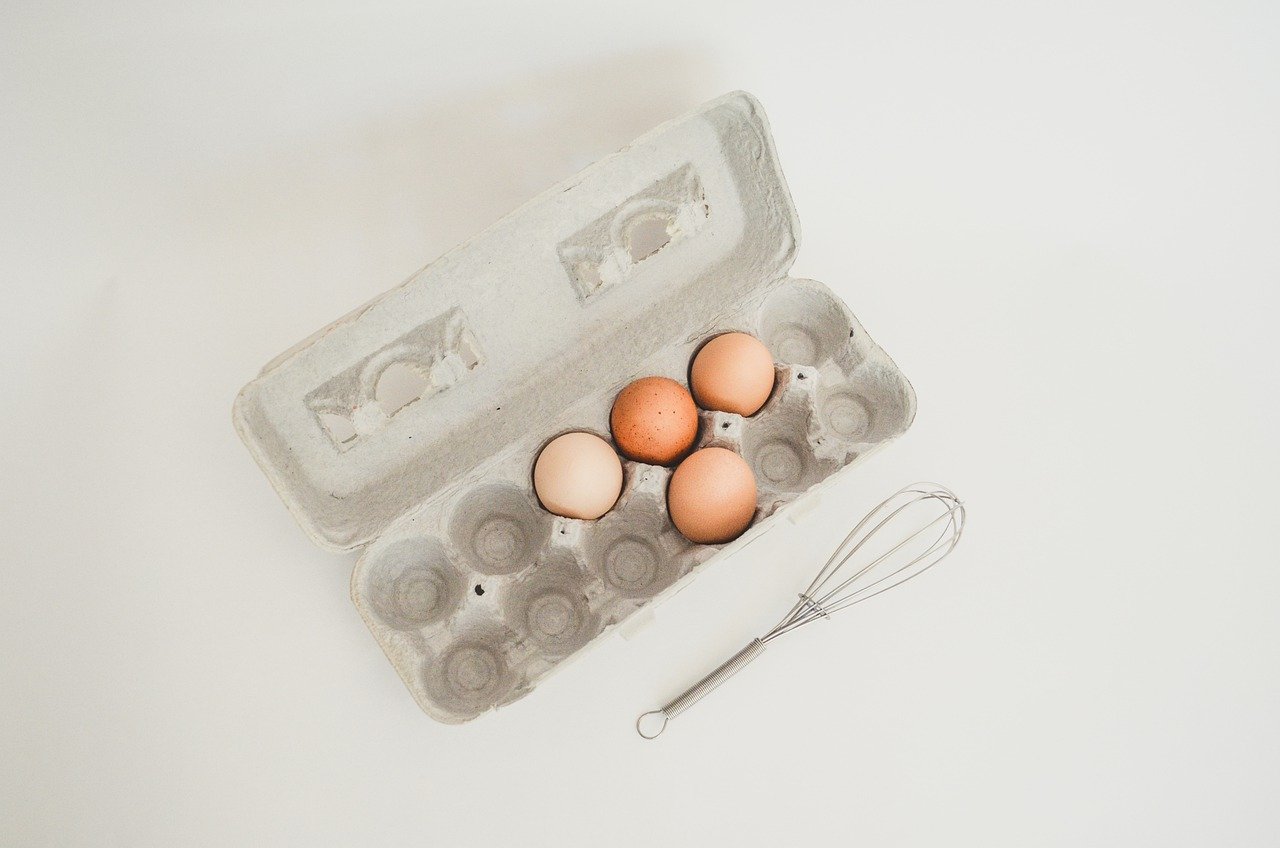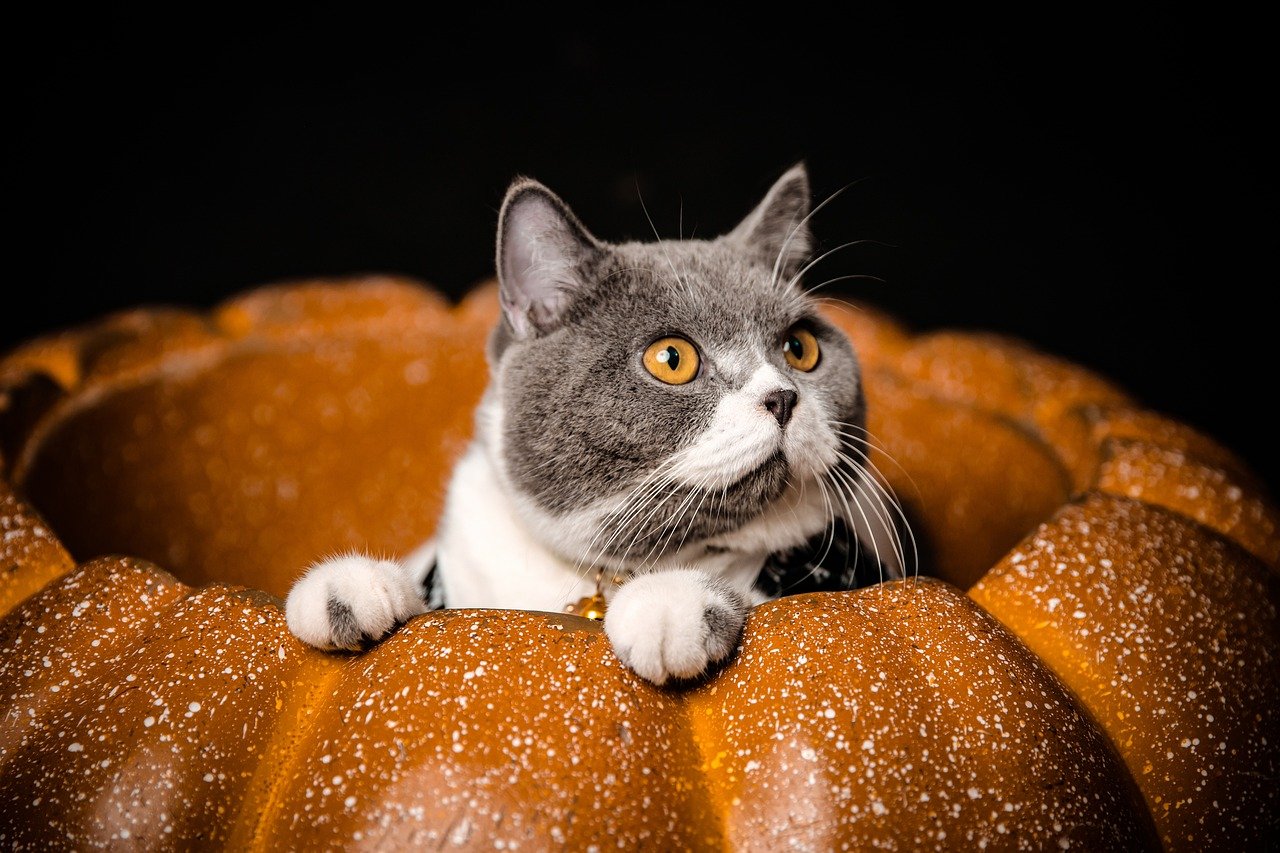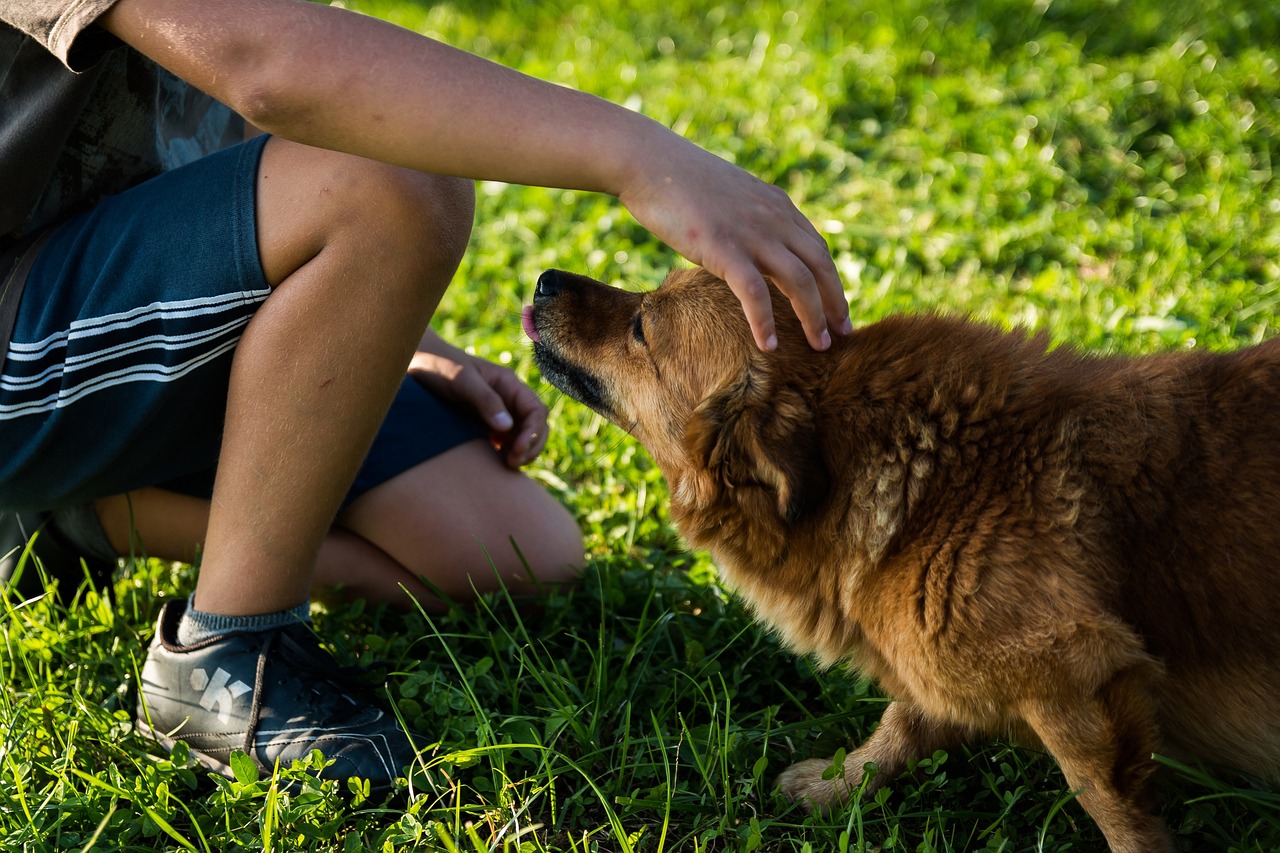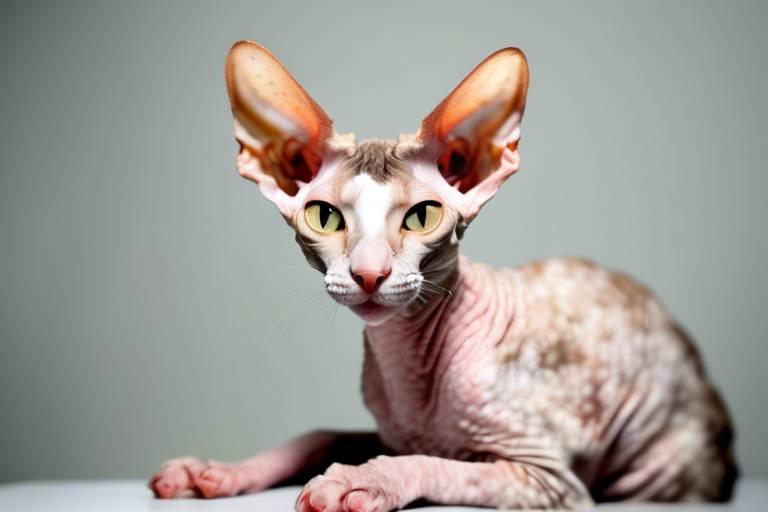How Breed Affects Nutritional Needs in Pets
When it comes to our furry friends, one size definitely does not fit all, especially when we talk about nutrition. Just like humans, pets have unique dietary needs that vary significantly based on their breed. Have you ever wondered why a Great Dane might need a different diet than a Chihuahua? It's all about understanding how breed affects their nutritional requirements. In this article, we will delve into the fascinating world of pet nutrition and explore the specific dietary needs that different breeds require to thrive.
First off, let's consider the basics. Nutritional requirements for pets are influenced by various factors, including size, age, and activity level. For instance, a high-energy breed like a Border Collie will require more calories and protein than a more sedentary breed like a Bulldog. This difference is crucial for maintaining optimal health and preventing obesity, which can lead to serious health issues.
Understanding these differences is not just about keeping our pets healthy; it’s about ensuring they live their best lives. Imagine feeding a small breed the same amount of food as a large breed—this could lead to serious health complications. Therefore, it's essential to tailor their diets to meet their specific needs. Whether you have a playful puppy or a calm senior pet, knowing their breed-specific requirements can make all the difference.
In the following sections, we will explore various aspects of pet nutrition, including caloric needs, protein and fat requirements, common nutritional deficiencies, and the importance of consulting with veterinarians. By the end of this article, you will have a comprehensive understanding of how to best nourish your pet based on their breed, ensuring they remain healthy, happy, and full of life.
Nutritional requirements vary significantly among pet breeds. This section discusses the essential nutrients needed for pets and how these needs change with size, age, and activity level.
Small and large breeds have distinct nutritional demands. Here, we examine the differences in caloric intake, protein needs, and specific dietary considerations for both categories.
Caloric needs differ based on breed size. This subsection highlights how energy requirements are calculated for small and large breeds, ensuring they receive appropriate caloric intake for optimal health.
Various factors, such as age, activity level, and metabolism, influence caloric needs. This section delves into how these factors play a role in determining the right diet for different breeds.
Feeding guidelines vary for small and large breeds. This subsection provides practical advice on portion sizes and feeding schedules tailored to each breed category.
Protein and fat are crucial for all pets, but their needs vary by breed. This section discusses the importance of these macronutrients and how to adjust them based on breed characteristics.
Certain breeds are prone to specific nutritional deficiencies. Here, we identify common deficiencies and suggest dietary adjustments to prevent health issues in various breeds.
Some breeds are more susceptible to health issues related to nutrition. This subsection explores how proper nutrition can mitigate risks associated with breed-specific health concerns.
In some cases, dietary supplements may be necessary. This section discusses when and how to incorporate supplements into a pet's diet based on their breed and health needs.
Consulting a veterinarian is essential for ensuring a pet's nutritional needs are met. This section emphasizes the importance of professional guidance in tailoring diets for specific breeds.
- How can I determine my pet's ideal weight? - Consult your veterinarian for an assessment based on your pet’s breed, age, and activity level.
- Are commercial pet foods sufficient for my pet's nutritional needs? - Most commercial foods are formulated to meet general nutritional standards, but always check for breed-specific recommendations.
- When should I consider supplements for my pet? - If your pet has specific health concerns or dietary restrictions, consult your vet about potential supplements.
- How often should I feed my pet? - Feeding frequency can vary; generally, puppies require more frequent meals than adult dogs.

Understanding Nutritional Requirements
Nutritional requirements for pets are not one-size-fits-all; they vary significantly among different breeds. Just like humans, pets have unique dietary needs that depend on several factors, including their size, age, and activity level. Understanding these requirements is crucial for pet owners who want to ensure their furry friends lead healthy and happy lives.
At the core of a pet's nutritional needs are essential nutrients that play vital roles in their overall health. These nutrients include:
- Proteins: The building blocks of life, necessary for growth and repair.
- Fats: Provide energy and support cell growth.
- Carbohydrates: Offer a quick source of energy and aid in digestion.
- Vitamins: Crucial for various biochemical processes.
- Minerals: Important for bone health and metabolic functions.
Each breed may require different ratios of these nutrients. For instance, a highly active breed like a Border Collie will need a higher caloric intake and more protein than a more sedentary breed like a Bulldog. Additionally, age plays a significant role; puppies need more protein and calories to support their rapid growth, while senior pets may require lower calories and specialized diets to manage health conditions.
Moreover, the activity level of your pet cannot be overlooked. A playful Labrador will have different nutritional needs compared to a couch-loving Pug. It’s essential to assess your pet's lifestyle and adjust their diet accordingly. For example, a dog that gets plenty of exercise may benefit from a diet that is higher in fat and protein, while a less active dog may require a diet lower in calories to prevent obesity.
In summary, understanding your pet's nutritional requirements is fundamental for their well-being. By considering breed, age, and activity level, you can tailor their diet to meet their specific needs. This proactive approach not only enhances their health but also contributes to a longer, happier life.

Small vs. Large Breeds
When it comes to the world of pets, size truly matters. The nutritional needs of small and large breeds can be as different as night and day. Imagine a tiny Chihuahua and a massive Great Dane sharing a meal; their requirements would vary dramatically! Understanding these differences is crucial for any pet owner who wants to ensure their furry friend is healthy and thriving.
Small breeds, typically weighing under 20 pounds, have faster metabolisms and therefore require a higher caloric intake per pound of body weight compared to their larger counterparts. For example, a small dog might need around 40 calories per pound, while a large breed dog may only need about 20-30 calories per pound. This means that while a small breed might eat a smaller portion size, the density of nutrients in their food is vital. They need high-quality ingredients packed with protein, fats, and essential vitamins to meet their energy needs without overfeeding.
On the flip side, large breeds, which can weigh anywhere from 50 to over 100 pounds, have different dietary considerations. These dogs often require a diet that supports their larger frame and slower metabolism. A diet too high in calories can lead to obesity, which is a significant concern for larger breeds. Therefore, it’s essential to choose a food that provides the right balance of nutrients without excess calories. Large breed formulas often include controlled levels of calcium and phosphorus to promote healthy bone growth, as these dogs are more susceptible to skeletal issues.
| Aspect | Small Breeds | Large Breeds |
|---|---|---|
| Weight Range | Under 20 lbs | 50 lbs and up |
| Caloric Needs | 40 calories/lb | 20-30 calories/lb |
| Protein Requirement | Higher protein density | Moderate protein levels |
| Health Concerns | Dental issues, hypoglycemia | Joint problems, obesity |
Ultimately, the key to feeding small and large breeds is understanding their unique needs and tailoring their diets accordingly. Small breeds thrive on nutrient-dense, high-calorie foods that cater to their rapid metabolism, while large breeds benefit from balanced diets that help maintain a healthy weight and support their skeletal structure. It’s like fitting a square peg into a round hole—each breed has its own specific nutritional requirements that must be met to ensure a long, healthy life.
As a pet owner, it’s essential to consider these differences when selecting food. Always look for high-quality pet food that lists meat as the first ingredient, as this is a sign of a protein-rich diet. Additionally, consulting with your veterinarian can provide personalized insights tailored to your pet’s specific needs, ensuring they receive the best possible nutrition.
Caloric Needs
When it comes to understanding the of our furry friends, it’s essential to recognize that these requirements are not one-size-fits-all. Just like humans, pets have unique metabolic rates that can vary dramatically based on their breed, size, age, and activity level. For instance, a high-energy breed like a Border Collie will require significantly more calories than a laid-back Bulldog, even if they both weigh the same. This variance in energy needs can be likened to the difference between a sports car and a family sedan; one thrives on high-octane fuel while the other is perfectly content with regular unleaded.
To better understand how to calculate these caloric needs, we can break it down into a few simple components. The basic formula often used involves the pet's weight and a multiplier that accounts for their activity level. For example, a sedentary dog might need around 30 calories per pound of body weight per day, while an active dog could require up to 50 calories per pound. Here’s a quick overview:
| Activity Level | Calories per Pound |
|---|---|
| Sedentary | 30 |
| Moderately Active | 40 |
| Highly Active | 50 |
Understanding these figures is crucial because underfeeding or overfeeding can lead to serious health issues. For instance, overweight pets are at a higher risk for conditions such as diabetes, heart disease, and joint problems, while underfed pets may suffer from malnutrition and a weakened immune system. It’s a delicate balance that pet owners must navigate.
Additionally, it’s important to consider the pet’s life stage. Puppies and kittens have higher caloric needs due to their rapid growth and energy levels, while older pets may require fewer calories as their metabolism slows down. This shift can be compared to how teenagers eat more than adults due to their growth spurts, while seniors tend to eat less as their bodies change.
In summary, determining the right caloric intake for your pet is a blend of science and observation. Keep an eye on their weight, energy levels, and overall health. If you notice your pet gaining or losing weight unexpectedly, it might be time to reevaluate their diet and consult with a veterinarian for tailored advice.
- How can I tell if my pet is overweight? Look for a visible waistline and feel for their ribs; if you can’t feel them easily, they may need to lose some weight.
- Can I feed my pet table scraps? While some human foods are safe, many can be harmful. Always check with your vet before introducing new foods.
- How often should I feed my pet? Most adult pets do well with two meals a day, while puppies may require three to four smaller meals.
Factors Influencing Caloric Needs
Understanding the caloric needs of pets is not just about their size; it's about a whole host of factors that come into play. Just like humans, pets have unique lifestyles and physiological characteristics that can significantly impact how many calories they need each day. Let's dive into some of these key factors, shall we?
First off, age plays a crucial role. Puppies and kittens, for example, require more calories relative to their body weight than adult pets because they are growing rapidly. On the other hand, senior pets often need fewer calories since their metabolism slows down. Think of it this way: a young pet is like a race car, revving up and consuming fuel quickly, while an older pet is more like a classic car, cruising along at a more leisurely pace.
Next, we have activity level. An active dog that loves to run and play fetch will need more calories than a couch potato cat who prefers lounging in the sun. If your pet is constantly on the move, you’ll want to ensure they get enough fuel to keep their energy levels up. In fact, you might find it helpful to categorize your pet's activity level into a few simple groups:
- Low Activity: Pets that are primarily indoors and prefer minimal movement.
- Moderate Activity: Pets that enjoy regular walks and playtime.
- High Activity: Pets that are always on the go, engaging in vigorous exercise.
Another important factor is metabolism. Just like some people can eat anything and not gain a pound, some pets have faster metabolisms that require more calories. Breeds like the Jack Russell Terrier or Border Collie are known for their high energy levels and fast metabolisms, which means they’ll need more food to maintain their energy throughout the day. Conversely, breeds prone to weight gain, like the Bulldog or Beagle, may need a careful approach to their diet to prevent obesity.
Lastly, health status cannot be overlooked. Pets with certain health issues may require specific dietary adjustments. For instance, a pet recovering from surgery may need additional calories to support healing, while pets with conditions like diabetes may need a carefully controlled diet to manage their weight and blood sugar levels. Consulting with a veterinarian can help you navigate these complexities.
In conclusion, the caloric needs of your pet are influenced by a combination of age, activity level, metabolism, and health status. By taking these factors into consideration, you can create a tailored feeding plan that ensures your furry friend stays healthy and happy. Remember, just as no two pets are alike, their dietary needs will vary, making it essential to pay attention to their individual requirements.
- How can I determine my pet's caloric needs? You can start by consulting with your veterinarian, who can provide a tailored assessment based on your pet's specific factors.
- What should I do if my pet is overweight? Adjusting their diet and increasing exercise are usually the first steps, but it's best to consult a vet for a comprehensive plan.
- Are there specific foods that can help with my pet's caloric needs? Yes, high-quality pet foods that list real meat as the first ingredient are often better for meeting nutritional needs.
Feeding Guidelines for Different Sizes
When it comes to feeding our furry friends, understanding the differences in nutritional needs based on size is crucial. Small and large breeds have distinct requirements that must be met to ensure their health and vitality. For example, small breeds, like Chihuahuas and Pomeranians, have faster metabolisms and higher energy levels relative to their size. This means they require more concentrated calories in smaller portions throughout the day. On the other hand, large breeds, such as Great Danes and St. Bernards, need their meals spaced out to prevent bloating and other gastrointestinal issues.
To make things easier, here are some practical guidelines to follow:
- Small Breeds: Aim for high-calorie, nutrient-dense foods. Feeding them three to four small meals a day can help maintain their energy levels.
- Medium Breeds: These dogs can typically handle two meals a day, with a focus on balanced nutrition that includes both protein and carbohydrates.
- Large Breeds: It's essential to feed them two meals a day as well, but be cautious with portion sizes to avoid overfeeding.
Additionally, the type of food plays a significant role. For small breeds, consider options that are specifically formulated for their size, as these often contain higher fat and protein levels. Large breeds, on the other hand, benefit from food designed to support joint health and maintain a healthy weight, as they are more prone to obesity and related health issues.
Feeding schedules should also reflect the pet's lifestyle. For instance, if your small breed is particularly active, you might want to adjust their feeding times to align with their energy expenditure. Conversely, large breeds that are less active may require a more regimented schedule to prevent weight gain.
Ultimately, the key is to observe your pet's behavior and adjust accordingly. If they seem lethargic or are gaining weight, it might be time to reevaluate their diet. Regularly consulting with your veterinarian can help ensure that you’re meeting your pet's specific needs based on their breed and size.
Protein and Fat Requirements
When it comes to our furry friends, protein and fat are two of the most critical macronutrients that play a significant role in their overall health and vitality. Just like humans, pets require these nutrients in varying amounts, and the specific needs can differ greatly depending on the breed. For instance, large breeds such as Great Danes or St. Bernards often need a diet that is rich in protein to support their muscle mass and maintain their energy levels. On the other hand, smaller breeds like Chihuahuas or Pomeranians typically require a higher fat content in their diet to meet their energy needs, as they have faster metabolisms.
Protein is essential for building and repairing tissues, making hormones and enzymes, and supporting the immune system. The general recommendation is that adult dogs should receive about 18-25% of their daily caloric intake from protein, while puppies or active breeds may need as much as 30%. Cats, being obligate carnivores, require even higher protein levels, typically around 26-30% of their diet. However, it's crucial to remember that not all proteins are created equal. High-quality protein sources, such as chicken, beef, and fish, provide essential amino acids that are vital for your pet's health.
Now, let’s talk about fats. These nutrients are not just a source of energy; they also help in the absorption of fat-soluble vitamins (A, D, E, and K) and play a role in maintaining healthy skin and a shiny coat. While the fat content in a pet's diet can vary, it is generally recommended that dogs should get about 5-15% of their daily calories from fats, while cats should aim for around 15-25%. It's important to choose the right type of fat, as some fats, like Omega-3 and Omega-6 fatty acids, are particularly beneficial for your pet's health.
To illustrate the differences in protein and fat requirements across various breeds, here's a simple table:
| Breed Type | Protein Requirement (% of diet) | Fat Requirement (% of diet) |
|---|---|---|
| Small Breeds (e.g., Chihuahua) | 25-30% | 15-20% |
| Medium Breeds (e.g., Beagle) | 20-25% | 10-15% |
| Large Breeds (e.g., Labrador) | 18-22% | 8-12% |
| Giant Breeds (e.g., Great Dane) | 16-20% | 5-10% |
As you can see, the protein and fat requirements can vary significantly based on the size and breed of your pet. It's essential to tailor their diet accordingly to ensure they receive the right balance of these nutrients. Always consult with your veterinarian to determine the best dietary plan for your specific breed, as they can provide guidance based on your pet's unique health needs and lifestyle.
- How do I know if my pet is getting enough protein? Look for signs such as a healthy coat, normal energy levels, and regular muscle tone. A veterinarian can also help assess your pet's diet.
- Can I feed my dog a vegetarian diet? While it's possible, you must ensure that the diet is well-balanced and meets all essential nutrient requirements, particularly protein.
- What are the signs of fat deficiency in pets? Symptoms may include dry skin, dull coat, and weight loss. If you notice these signs, consult your vet.

Common Nutritional Deficiencies
Nutritional deficiencies can be a hidden menace for our beloved pets, and they often vary significantly between different breeds. Just like humans, pets require a balanced diet rich in essential nutrients to thrive. However, certain breeds are predisposed to specific deficiencies due to their unique metabolic needs and genetic predispositions. For instance, large breeds such as Great Danes and Saint Bernards may face challenges related to calcium and phosphorus balance, which are crucial for bone health. On the other hand, smaller breeds like Chihuahuas and Dachshunds may struggle with adequate protein intake, which is vital for maintaining muscle mass and overall vitality.
One common deficiency that many pet owners overlook is Omega-3 fatty acids. These essential fats are crucial for maintaining a healthy coat and skin, as well as supporting cognitive function. Breeds like Bulldogs and Retrievers can be particularly prone to skin issues if their diet lacks these vital nutrients. Additionally, Vitamin D is another nutrient that can be lacking in many pet diets, especially in breeds that are less active or spend most of their time indoors. This vitamin plays a key role in calcium absorption and overall bone health.
Moreover, certain breeds may be more susceptible to nutritional deficiencies due to their specific health concerns. For example, breeds like Cocker Spaniels can suffer from ear infections, which may be exacerbated by a diet lacking in adequate zinc and Vitamin E. To combat these deficiencies, it’s crucial to tailor a pet’s diet according to their breed-specific needs. Here are a few common deficiencies and the breeds that may be affected:
| Nutrient | Commonly Affected Breeds | Potential Health Issues |
|---|---|---|
| Omega-3 Fatty Acids | Bulldogs, Retrievers | Skin issues, cognitive decline |
| Vitamin D | Indoor breeds, less active breeds | Bone health issues |
| Zinc | Cocker Spaniels | Skin infections, ear infections |
| Protein | Chihuahuas, Dachshunds | Muscle wasting, lethargy |
To ensure your pet receives a well-rounded diet, it’s important to consult with a veterinarian who can recommend dietary adjustments based on your pet's breed and individual health needs. Regular check-ups can help identify any potential deficiencies early on, allowing for timely intervention and dietary modifications.
In conclusion, being aware of the common nutritional deficiencies associated with specific breeds can empower pet owners to make informed choices about their pets' diets. By providing a balanced and nutrient-rich diet, you can help your furry friend lead a healthier and happier life.
- What are the signs of nutritional deficiencies in pets? Look for symptoms like lethargy, poor coat condition, and frequent infections.
- How can I ensure my pet's diet is balanced? Consult with a veterinarian and consider high-quality commercial pet foods that meet AAFCO standards.
- Are supplements necessary? Supplements can be beneficial, but always consult your vet before adding them to your pet's diet.
Breed-Specific Health Concerns
When it comes to our furry friends, understanding their unique health concerns based on breed is crucial for their overall well-being. Some breeds are genetically predisposed to certain health issues, and as responsible pet owners, we need to be aware of these risks. For instance, large breeds like Great Danes and Doberman Pinschers are often more susceptible to conditions such as hip dysplasia and heart disease, while small breeds like Chihuahuas and Dachshunds can face challenges like patellar luxation and dental issues.
One of the most significant breed-specific health concerns is obesity, which can affect pets of all sizes but tends to be more pronounced in certain breeds. For example, Labrador Retrievers are notorious for their love of food, making them prone to weight gain if not monitored closely. This can lead to a host of other issues, including diabetes and joint problems. Therefore, it’s essential to tailor their diet not just to their caloric needs but also to their propensity for gaining weight.
Additionally, some breeds have unique dietary requirements that can help mitigate these health risks. For instance, breeds like the Boxer are known for their sensitive stomachs, so a diet rich in easily digestible proteins can be beneficial. On the other hand, breeds such as the Cocker Spaniel may require diets fortified with omega fatty acids to maintain healthy skin and coat, as they can be prone to skin allergies.
To give you a clearer picture, here’s a simple table outlining some common breed-specific health concerns along with dietary considerations:
| Breed | Common Health Concern | Dietary Consideration |
|---|---|---|
| Great Dane | Hip Dysplasia | High-quality protein and calcium for bone health |
| Labrador Retriever | Obesity | Controlled caloric intake and high fiber content |
| Cocker Spaniel | Skin Allergies | Omega fatty acids to support skin health |
| Chihuahua | Dental Issues | Crunchy kibble to promote dental health |
Incorporating these dietary adjustments can play a vital role in preventing or managing breed-specific health concerns. However, it's important to note that nutrition alone isn't a magic solution. Regular veterinary check-ups, a balanced lifestyle, and proper exercise are equally important in keeping our pets healthy and happy.
So, the next time you look at your pet, remember that their breed isn't just a label; it’s a window into their health needs. Tailoring their diet and being proactive about their health can make a significant difference in their quality of life. After all, a well-nourished pet is a happy pet!
- What are the most common health concerns for small breeds? Small breeds often face dental issues, patellar luxation, and heart disease.
- How can I prevent obesity in my dog? Monitor their food intake, provide regular exercise, and avoid giving excessive treats.
- Should I consult a vet for my pet's diet? Yes, consulting a veterinarian is essential for tailoring a diet that meets your pet's specific needs.
Supplementing the Diet
When it comes to our beloved pets, ensuring they receive a well-rounded diet is crucial for their overall health and happiness. However, sometimes, even the best pet foods may not provide all the essential nutrients that a specific breed requires. This is where dietary supplements come into play. But hold on—before you rush to the pet store, it's vital to understand when and how to incorporate these supplements into your pet's diet.
First off, it’s important to recognize that not all pets need supplements. Many commercial pet foods are formulated to meet the nutritional standards set by regulatory bodies, which means they might already contain all the necessary vitamins and minerals. However, certain breeds may have unique needs due to their size, age, or health conditions. For instance, large breeds like Great Danes may benefit from glucosamine supplements to support their joints, while small breeds like Chihuahuas might need additional calcium for bone health.
Additionally, some pets may suffer from nutritional deficiencies that can be addressed with the right supplements. For example, if a dog has a dull coat or shows signs of lethargy, it might be lacking essential fatty acids. Omega-3 and Omega-6 fatty acids can be fantastic additions to their diet, promoting a shiny coat and overall vitality. It's like giving your pet a little boost of energy and health in a bottle!
When considering supplements, always keep in mind the following key points:
- Consult Your Veterinarian: Before introducing any supplement, it's crucial to consult with your veterinarian. They can help identify specific needs based on your pet's breed, age, and health status.
- Quality Matters: Choose high-quality supplements from reputable brands. Just like with food, not all supplements are created equal, and some may contain fillers or harmful ingredients.
- Monitor Your Pet: After introducing a supplement, keep an eye on your pet. Look for any changes in behavior, coat quality, or energy levels. If you notice anything unusual, consult your vet immediately.
To make things clearer, here’s a quick overview of common supplements and their benefits:
| Supplement | Benefits | Ideal for |
|---|---|---|
| Glucosamine | Supports joint health | Large breeds, older pets |
| Omega Fatty Acids | Improves coat condition, reduces inflammation | All breeds, especially those with skin issues |
| Probiotics | Supports digestive health | Pets with digestive issues |
In conclusion, while supplements can be a beneficial addition to your pet's diet, they should not replace a balanced diet. Think of them as a little extra something to help your pet thrive. Always prioritize whole foods and consult with professionals to ensure your furry friend is getting exactly what they need. After all, a healthy pet is a happy pet!
Q: How do I know if my pet needs supplements?
A: Look for signs of nutritional deficiencies such as a dull coat, lethargy, or digestive issues. Consulting with your veterinarian is the best way to determine your pet's specific needs.
Q: Are there any risks associated with giving my pet supplements?
A: Yes, over-supplementation can lead to health issues. Always follow dosage recommendations and consult with your vet before introducing new supplements.
Q: Can I give my pet human supplements?
A: It's not advisable to give pets human supplements unless specifically directed by a veterinarian, as some ingredients can be harmful to pets.

Consulting with Veterinarians
When it comes to ensuring that your pet receives the best possible nutrition, is absolutely essential. These professionals are not just pet doctors; they are also experts in animal nutrition and can provide invaluable insights tailored to your pet's specific breed, age, and health conditions. Imagine trying to assemble a complex puzzle without the picture on the box—this is what feeding your pet without professional guidance can feel like. Veterinarians can help you see the bigger picture, ensuring that each piece fits perfectly into your pet's diet.
One of the primary reasons to consult a veterinarian is the unique dietary needs that different breeds require. For instance, a Great Dane has vastly different nutritional requirements compared to a Chihuahua. While both are dogs, their size, metabolism, and activity levels can lead to different dietary needs. A veterinarian can assess your pet's specific requirements and recommend a diet that supports their health and well-being. This personalized approach not only helps in maintaining a healthy weight but also in preventing potential health issues that can arise from improper nutrition.
Furthermore, veterinarians can help identify any underlying health conditions that may affect your pet's dietary needs. For example, some breeds are predisposed to certain health issues, such as hip dysplasia in larger breeds or obesity in smaller ones. A vet can recommend dietary adjustments or specific supplements that can help mitigate these risks. Regular check-ups can also help in detecting any nutritional deficiencies early on, allowing for timely interventions.
Another important aspect of consulting with a veterinarian is the ability to create a custom feeding plan. This plan can include not just what your pet should eat, but also how much and how often. Factors such as your pet's age, activity level, and even their lifestyle can influence their nutritional needs. For instance, an active dog might require a higher caloric intake compared to a senior dog that is less active. A veterinarian can provide a detailed feeding schedule that aligns with your pet's unique lifestyle, ensuring they receive the right nutrients at the right times.
Additionally, veterinarians can guide you on the use of dietary supplements. While many pet owners might think that supplements are a one-size-fits-all solution, the reality is that not every pet needs them. A vet can help determine if your pet could benefit from supplements and recommend the appropriate types, such as omega fatty acids for skin health or glucosamine for joint support. This tailored approach can significantly enhance your pet's quality of life.
In conclusion, the importance of consulting with veterinarians cannot be overstated. They are your best resource for ensuring that your pet's nutritional needs are met comprehensively. By leveraging their expertise, you can make informed decisions that will lead to a happier, healthier pet. After all, a well-nourished pet is not just a happy pet; they are a thriving member of your family.
- How often should I consult my veterinarian about my pet's diet? It's recommended to have regular check-ups, at least once a year, and discuss dietary needs during these visits.
- Can I change my pet's diet without consulting a vet? While you can make changes, it's best to consult a vet to ensure the new diet meets all nutritional needs.
- What should I do if my pet has a food allergy? Consult your veterinarian immediately for testing and dietary recommendations.
Frequently Asked Questions
- How does my pet's breed affect its nutritional needs?
Different breeds have unique dietary requirements due to variations in size, metabolism, and activity levels. For instance, a small breed like a Chihuahua has different caloric and protein needs compared to a larger breed such as a Great Dane. Understanding these differences is crucial for maintaining your pet's health and well-being.
- What are the main factors that influence my pet's caloric needs?
Caloric needs are influenced by several factors including age, activity level, and metabolism. Puppies and kittens typically require more calories for growth, while older pets may need fewer calories. Additionally, an active dog will need more energy than a couch potato, so it's important to adjust their diet accordingly.
- Are there specific nutritional deficiencies I should watch for in my pet's breed?
Yes, certain breeds are prone to specific nutritional deficiencies. For example, large breeds may be more susceptible to joint issues, necessitating additional nutrients like glucosamine. It's essential to research your breed's common health concerns and adjust their diet to prevent these deficiencies.
- How can I determine the right portion sizes for my pet?
Portion sizes vary by breed size and dietary needs. A general guideline is to follow the feeding recommendations on the pet food packaging, but you may need to adjust based on your pet's activity level and health condition. Consulting with your veterinarian can provide tailored advice on portion sizes.
- When should I consider adding supplements to my pet's diet?
Supplements may be necessary if your pet has specific health concerns or dietary deficiencies. However, it's crucial to consult with your veterinarian before adding any supplements to ensure they are appropriate for your pet's breed and health needs.
- Why is it important to consult with a veterinarian about my pet's diet?
Your veterinarian can provide invaluable guidance tailored to your pet's specific breed, age, and health concerns. They can help you create a balanced diet that meets all nutritional requirements and can advise on any necessary adjustments as your pet ages or their activity level changes.



















